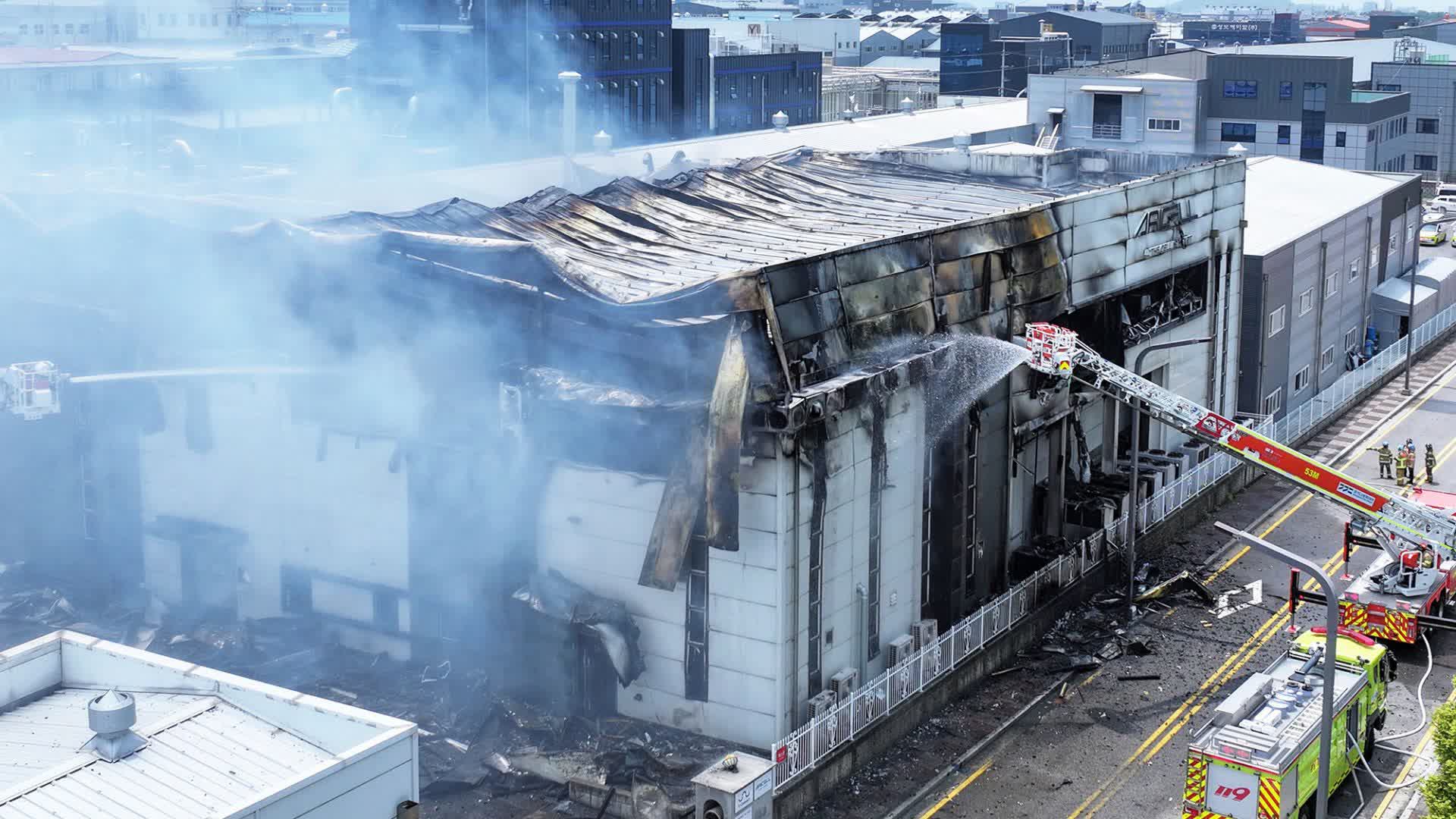What just happened? A fire that broke out at a lithium battery manufacturing plant in Hwaseong, South Korea, on Monday has killed at least 23 people, most of them Chinese nationals. The plant was set ablaze after multiple battery cells exploded, filling the area with toxic smoke. Around 70 people were working at the factory at the time of the explosion.
The fire happened at a two-story building run by primary battery manufacturer Aricell. The company, which reported $3.5 million in sales last year, makes lithium batteries for sensors and radio communication devices. Fire officials say around 35,000 battery units were stored in the warehouse.
It's unclear what caused the batteries to explode. It's speculated that a thermal event in one battery could have caused a chain reaction that spread to others.
The fire caused sections of the factory's upper floor to collapse, and chunks of the building were blown out into the street by explosions. Officials say that the victims likely succumbed to extremely toxic gas within seconds of the blaze getting out of control. The fire was largely extinguished in about six hours.
At least 22 people were killed after an explosion set a lithium battery factory on fire in South Korea, fire officials said. The fire and a series of explosions ripped through the factory run by primary battery manufacturer Aricell in Hwaseong https://t.co/QzywLmmOqs pic.twitter.com/HiNTw0GJbm
– Reuters (@Reuters) June 24, 2024
The 23 laborers killed in the incident included 12 women and five men from China, ranging in age from 23 to 48. The deceased were found clustered together near the wall opposite the exit door, writes the New York Times. That wall had no exit.
Smoke and the blaze spread within 15 seconds and the victims likely succumbed after taking one or two breaths, said Gyeonggi province fire official Cho Sun-ho.
The incident has shone a light on the working conditions faced by migrants in South Korea. The country enacted a law under which executives for companies that hire these temporary workers can be sent to jail for a year or be fined one billion Won ($718,187) if there is a fatal accident involving negligence. Until this year, it was not applied to factories that hired fewer than 50 workers.
Korea's labor ministry said an investigation would be launched into whether the company took sufficient measures to ensure workers' safety.
Park Sun-gwan, the head of Aricell, denied that the factory lacked safety measures, adding that it had trained its workers on what to do during an emergency.
